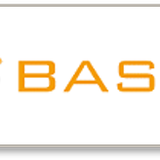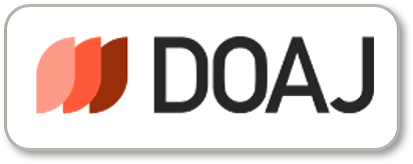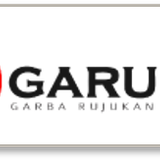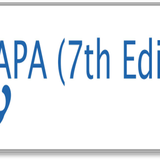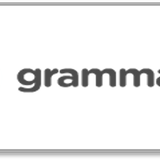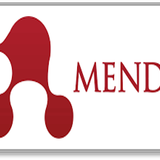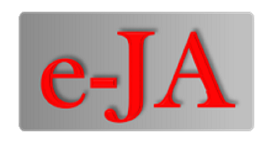Market Orientation, Hotel Chain Group And Strategic Management Accounting Usage
DOI:
https://doi.org/10.24912/ja.v24i1.640Abstract
The growth effect of the hospitality industry is an increasingly strong competition. Management's focus on the use of strategic management accounting is an important key in anticipating competition. For this reason, this study needs to identify factors that can influence the use of strategic management accounting by hotel management. This study aims to explain the effect of market orientation and hotel chain groups on the use of strategic management accounting in the hospitality industry. A total of 134 questionnaires are distributed to the hotel general managers in Southern Sumatra region. The number of questionnaires used in this study is 118 (88.06%). The data are analyzed using a statistical method of multiple regression. The statistical software used to estimate the model is SPSS software version 21. Research findings indicate that market orientation and hotel chain groups have a positive impact on the use of strategic management accounting in the hotel industry. An important contribution of this research is that the research findings confirm that market orientation is an important factor in the implementation of strategic management accounting, and hotel chain groups are new things that can be identified in strategic management accounting research.
References
Bastian, E. dan Muchlish, M. (2012). Perceived Environment Uncertainty, Business Strategy, Performance Measurement System And Oganizational Performance. Procedia - Social and Behavioral Sciences. 65 (December). pp. 787 – 792.
Bisbe, J and Malagueno, R. (2012). Using Strategic Performance Measurement Systems For Strategy Formulation: Does It Work In Dynamic Environments? Management Accounting Research. Vol. 23 (4). pp. 296 – 311.
Bouwens, J. and Abernethy, M. A. (2000). The Consequences Of Customization On Management Accounting System Design. Accounting Organizations and Society. Vol. 25 (3). pp. 221 – 241.
Bromwich, M. (1996). Strategic Management Accounting In Management Accounting Handbook. Drury. C. (Ed). The Chartered Institute of Management Accountants. pp. 203 – 227.
Brouthers, K. D. and Roozen, F. A. (1999). It is Time To Start Thingking About Strategic Accounting? Long Rage Planning. Vol. 32 (3). pp. 311 – 322.
Budiarto, D. S. Rahmawati. Prabowo, M. A. Bandi. Djajanto, L. Widodo, K. P. and Herawan, T. (2018). Accounting Information System (AIS) Aligment And Non-Financial Performance In Small Firm: A Contingency Perspective. Computational sciece and its applications. Vol. 5 (Juli). pp. 382 – 394.
Cadez, S. and Guilding, C. (2008). An Exploratory Investigation of an Integrated Contigency Model of Strategy Management Accounting. Accounting Organizations and Society. 33 (7/8). pp. 836 – 863.
Cadez, S. and Guilding, C. (2012). Strategy, Strategic Management Accounting Dan Performance: A Configurational Analysis. Industrial Management & Data Systems. Vol. 112 (3). pp. 484 – 501.
Choe, J. M. (2004). The Relationships Among Management Accounting Information, Organizational Learning and Production Performance. Journal Strategic Information System. Vol. 13 (1). pp. 61 – 85.
Cinquini, L. and Tennuci, A. (2010). Strategic Management Accounting And Business Strategy: A Loose Coupling? Journal of Accounting & Organizational Change. Vol. 6 (2). pp. 228 – 259
Collier, P. and Gregory, A. (1995). Strategic Management Accounting. International Journal of Contemporary Hospitality Management. 7 (1) 16 – 21.
Cortes, E. C Jose F. Azorın, M. and Moliner, J. P. (2007). The Impact Of Strategic Behaviours On Hotel Performance. International Journal of Contemporary Hospitality Management. Vol. 19 (1). pp. 6 – 20.
Cleary, P. (2015). An Empirical Investigation Of The Impact Of Management Accounting On Structural Capital And Business Performance. Journal of Intellectual Capital. Vol. 16 (3) pp. 566 – 586.
Friedman, A. L. and Lyne, S. R. (1997). Activity-based Techniques And The Death Of The Beancounter. European Accounting Review. Vol 6 (1). pp. 19 – 44.
Gil, D. N. (2004). The Role Of Sophisticated Accounting System In Strategy Management. The International Journal of Digital Accounting Research. Vol. 4 (8). pp. 125 – 144.
Guilding, C. and McManus L. (2002). The incidence, perceived merit and antecedents of customer accounting: An exploratory note. Accounting Organizations and Society. Vol. 27 (1/2). pp. 45 – 59.
Han, J. K. Kim, N. and Srivastava, R. (1998). Market Orientation And Organizational Performance: Is Innovation A Missing Link? Journal of Marketing. Vol. 62 (4). pp: 30–45.
Islam, J. and Hu, H. (2012). A review of literature on contingency theory in managerial accounting. African Journal of Business Management. Vol. 6 (15). pp. 5159 – 5164.
Jaworski, B. J. and Kohli, A. K. (1993). Market Orientation: Antecedents and Consequences. Journal of Marketing. Vol. 57 (1). pp. 53 – 70.
Kalkan, A. Bozkurt, O. C. and Arman, M. (2014). The Impacts Of Intellectual Capital, Innovation And Organizational Strategy On Firm Performance. Procedia - Social and Behavioral Science. Vol. 150 (September). pp. 700 – 707.
Karabag, S. F. and Berggren, C. (2014). Antecedents Of Firm Performance In Emerging Economies: Business Groups, Strategy, Industry Structure, And State Support. Journal of Business Research. Vol. 67 (10). pp. 2212 – 2223.
Lee, Y. K. Kim, S. H. Seo, M. K. and Hight, S. K. (2015). Market Orientation And Business Performance: Evidence From Franchising Industry. International Journal of Hospitality Management. 44 (1). pp. 28 – 37.
Macinati, M. S. and Pessina, E. A. (2014). Management Accounting Use and Fianancial Performane in Public Health-Care Organisations: Evidens From the Italian National Health Service. Health Policy. 117 (1) 98 – 111.
Mongiello, M. and Harris, P. (2006). Management accounting and corporate management: Insights into multinational hotel companies. International Journal of Contemporary Hospitality Management. Vol. 18 (5). pp. 364 – 379.
McManus, L. (2013). Customer Accounting And Marketing Performance Measures In The Hotel Industry: Evidence from Australia. International Journal of Hospitality Management. Vol. 33 (1). pp. 140 – 152.
Mia, L. and Winata, L. (2014). Manufacturing Strategy And Organisational Performance: The Role Of Competition And MAS Information. Journal of Accounting & Organizational Change. Vol. 10 (1). pp. 83 – 115.
Narver, J. C. and Slater, S.F. (1990). The Effect Of A Market Orientation On Business Profitability. Journal of Marketing. Vol. 54 (4). pp. 20 – 35.
Nixon, B. and Burns, J. (2012). The Paradox Of Strategic Management Accounting. Management Accounting Research. Vol. 23 (4). pp. 229 – 244.
Palmer, R. J. (1992). Strategic Goals Dan Objectives And The Design Of Strategic Management Accounting Systems. Advances in Management Accounting. Vol. 1 (1). pp. 179 – 204.
Sakka, O. Barki, H. and Cote, L. (2013). Interactive And Diagnostic Uses Of Management Control System In IS Projects: Antecedents And Their Impact On Performance. Information & Management. Vol. 50 (6). pp. 265 – 274.
Setiawan, A. S. and Rahmawati. (2016). Role of Strategic Management Accounting and Integrated Performance in Hotel Industry. Advances In Global Business Research. Vol. 13 (1). pp. 2421 – 2434.
Setiawan, A. S. Rahmawati, Djuminah, and Widagdo, A. K. (2019a). The Impact of Business Strategy Formulation Towards Acountant Role: Star Rating as Moderating Variable in Hotel Industry in Southern Sumatera Region. International Journal of Enggineering and Technology. Vol. 11 (4). pp. 749 – 755.
Setiawan, A. S. Rahmawati, Djuminah, and Widagdo, A. K. 2019b. Owner power, Deliberate Strategy Formulation, and Strategic Management Acounting. Opcion. Vol 35 (89). pp. 254 - 270.
Setiawan, A.S. and Rahmawati. (2017). Hubungan Rating Bintang Terhadap Peran Akuntansi Manajemen Strategis (Studi empiris pada perusahaan hotel di Sumatera Selatan). Jurnal Akuntansi. Vol 21 (1). pp. 114 – 126.
Sin, L. Y. M. Tse, A. C. B. C.S. Heung, V. C. S. and Yim, F. H. K. (2005). An Analysis Of The Relationship Between Market Orientation And Business Performance In The Hotel Industry. International Journal ofHospitality Management. Vol. 24 (4). Pp. 555 – 577.
Singla, C. and George, R. (2013). Internationalization And Performance: A Contextual Analysis Of Indian Firms. Journal of Business Research. Vol. 66 (12). pp. 2500 – 2506.
Spekle, R. F. and Verbeeten. F, H, M. (2014). The Use Of Performance Measurement System In The Public Sector: Effects On Performance. Management Accounting Research. Vol. 25 (2). pp. 131 – 146.
Su, S. Baird, K. and Schoch, H. (2015). The Moderating Effect Of Organisational Life Cycle Stages On The Association Between The Interactive And Diagnostic Approches To Using Control With Organisational Performance. Management Accounting Research. Vol. 26 (1). pp. 40 – 53.
Tari, J. J. Cortes, E. C. Jorge. Jose, P. M. and Azorin, F. M. (2009). Is It Worth While To Be A Quality Certified Hotel? Evidence from Spain. International Journal of Quality & Reliability Management. Vol. 26 (9). pp. 850 – 864.
Tavitiyaman, P. Zhang, H. Q. and Qu, H. (2012). The Effect Of Competitive Strategies And Organizational Structure On Hotel Performance. International Journal Contemporary Hospitality Management. 24 (1). pp. 140 – 159.
Teeratansirikool, L. Siengthai, S. Badir, Y. and Charoenngam, C. (2013). Competitive Strategies And Firms Performance: The Mediating Role Of Performance Measurement. International Journal of Productvity and Performance Management. 62 (2). pp. 168 – 184.
Turner, M. J. Way, S. A. Hodari, D. and Witteman, W. (2017). Hotel Property Performance: The Role Of Strategic Management Accounting. International Journal of Hospitality Management. Vol. 63 (1). pp. 33 – 43.
Uyar, A. and Kuzey, C. (2016). Does Management Accounting Mediate The Relationship Between Cost System Design Dan Performance? Advances in Accounting, Incorporating Advances in International Accounting. Vol. 35 (1). pp. 170 – 176.
Voola, R. Casimir, G. Carlson, J. and Agnihotri, M. A. (2012). The Effects Of Market Orientation, Technological Opportunism, And E-Business Adoption On Performance: A Moderated Mediation Analysis. Australasian Marketing Journal. 20 (2) 136 – 146.
Wang, C. H. Chen, K. Y. and Chen, S. C. (2012). Total Quality Management, Market Orientation And Hotel Performance: The Moderating Effects Of External Environmental Factors. International Journal of Hospitality Management. Vol. 31 (1) 19 – 129.
Downloads
Published
How to Cite
Issue
Section
License
Copyright (c) 2020 Jurnal Akuntansi

This work is licensed under a Creative Commons Attribution-NonCommercial-ShareAlike 4.0 International License.
This journal provides immediate open access to its content on the principle that making research freely available to the public supports a greater global exchange of knowledge.

This work is licensed under a Creative Commons Attribution-NonCommercial-ShareAlike 4.0 International License






